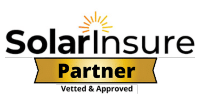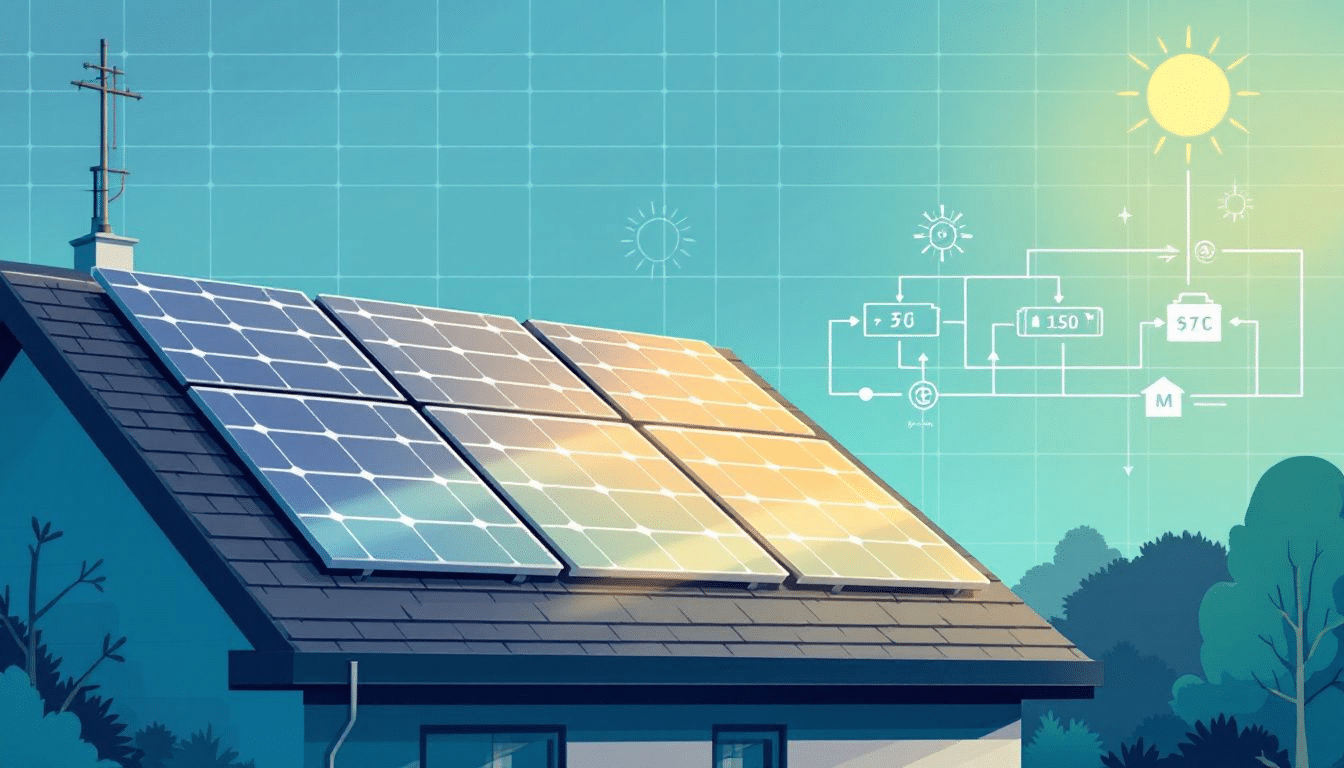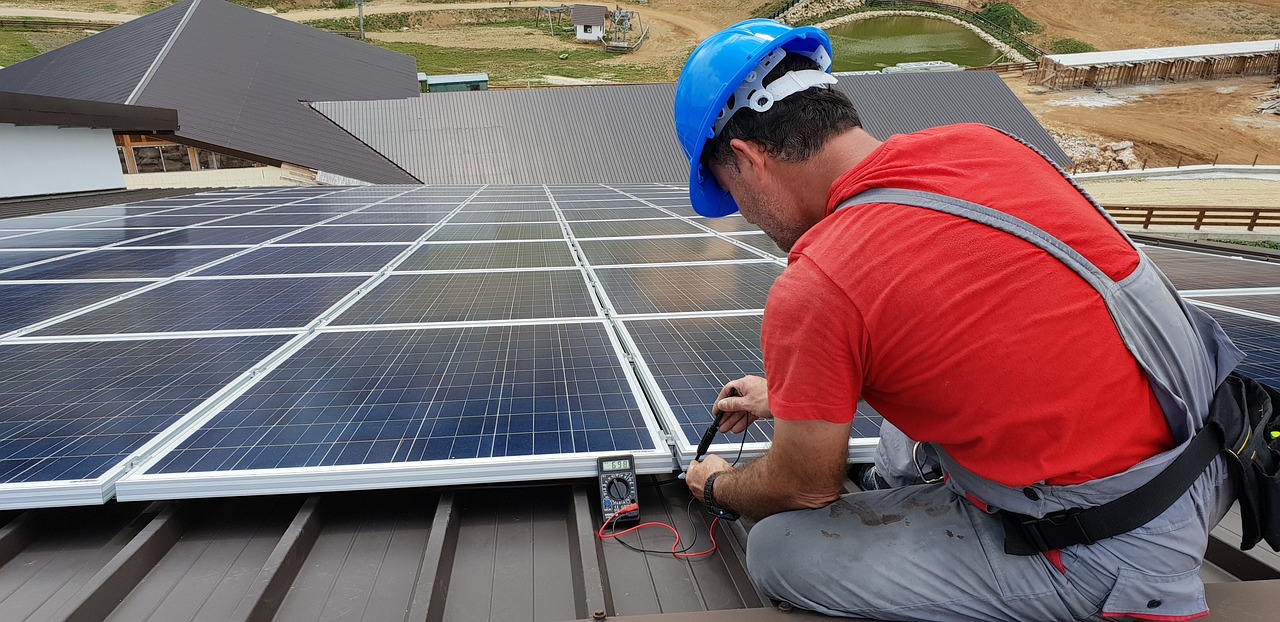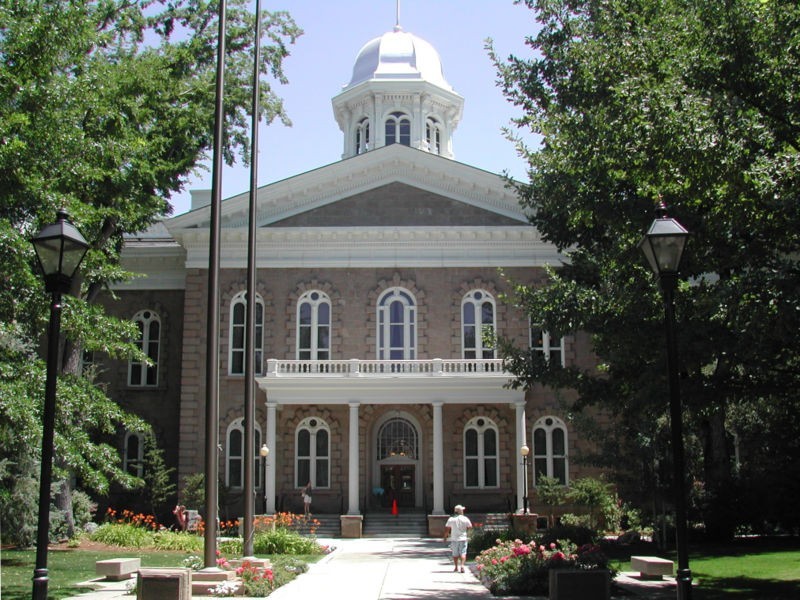Key Takeaways
- Solar panels can protect roofing materials from sun damage and may extend the lifespan of roofs, particularly asphalt shingles.
- Proper installation is key to preventing roof damage; working with qualified professionals minimizes risks associated with solar panel installation.
- Investing in solar panels not only reduces energy costs but can also increase property value, thanks to government incentives and potential tax credits.
Are you curious about how commercial solar panels might affect your roof?
This article delves into the impact of solar panel installation on roofing materials, the benefits and risks involved, and how to ensure a successful setup. Embracing solar energy can lead to significant savings and environmental benefits, but understanding the intricacies of installation is crucial.
Sun Source Energy expertly handles all stages of the commercial solar installation and maintenance process, ensuring that your solar investment is both efficient and secure.
Effects of Solar Panels on Roofing Materials
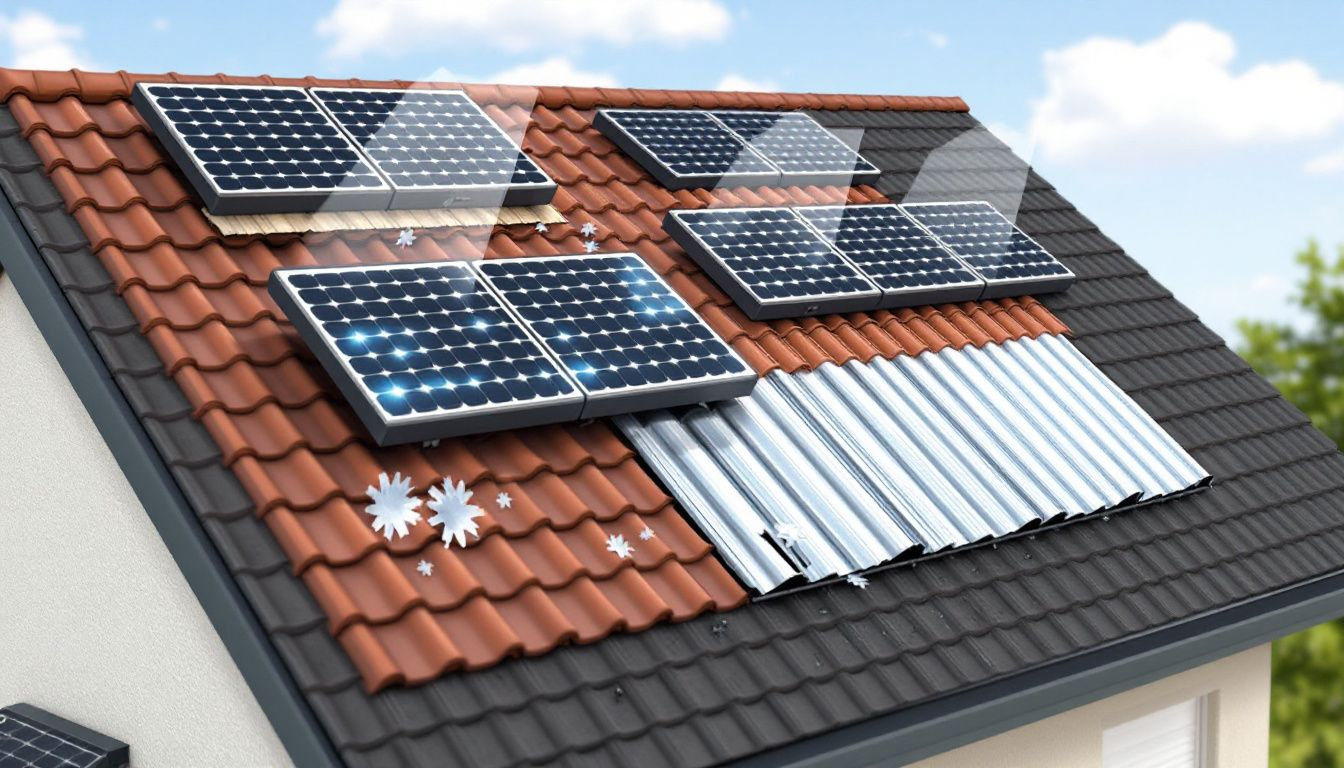
When considering solar panels, understanding their interaction with various roofing materials is crucial. Surprisingly, solar panels can provide protection from weather elements like hail and intense sunlight, enhancing the benefits of your existing roofing materials. In some cases, installing solar panels can even lower roof temperatures by an average of 5 degrees Fahrenheit, leading to a cooler interior environment. Additionally, solar panels absorb sunlight, contributing to their efficiency and effectiveness.
Sunlight can cause roofing materials, especially shingles, to become sun-bleached and dried out over time, but solar panels act as a shield, reducing this damage. Solar panels can be safely installed on different roof types without harming the materials, as long as the installation is done properly and does not ruin your roof. Additionally, concerns about solar panels damage roof can be alleviated with proper installation.
Here’s how solar panels interact with specific roofing types, beginning with metal roofs.
Compatibility with Metal Roofs
Metal roofs are highly compatible with solar panels thanks to their robust structural properties. One of the significant advantages of metal roofs is that they minimize penetration requirements during installation, which helps maintain the roof’s integrity and reduces the risk of leaks. This compatibility makes metal roofs an ideal candidate for solar panel installations.
Additionally, metal roofs are strong enough to support the extra weight of solar panels without compromising structural integrity. This strength further reduces the risk of any potential damage, ensuring that solar panels can be securely mounted and perform efficiently over time.
Impact on Asphalt Shingles
Asphalt shingles are another common roofing material that works well with solar panels. Installing solar panels doesn’t inherently damage roofs, including those with asphalt shingles. In fact, solar panels can provide UV protection, which can extend the lifespan of these shingles by shielding them from harmful sun exposure.
However, it’s crucial to take care during the installation process to prevent any damage to the shingles. When done correctly, the overall impact of solar panels on asphalt shingles is beneficial, providing an added layer of protection and potentially extending the roof’s lifespan.
Considerations for TPO and Other Membranes
For TPO and other membrane roofs, professional installation is crucial to avoid compromising the membrane’s integrity. Using nails, bolts, and straps can create holes that may compromise the roofing membrane, so it’s vital to employ techniques that minimize these risks.
Fortunately, with professional installation, the likelihood of damaging the roof is very low. Proper installation maintains the waterproofing and overall integrity of TPO and similar membranes, making them viable for solar panel installations.
Installation Process and Roof Integrity
The installation process of solar panels is a critical factor in maintaining roof integrity. Working with professional roofers and solar panel installers minimizes the risk of potential problems, ensuring that your roof remains intact and leak-free. The main steps involved in the installation process include evaluation, mounting, sealing, and waterproofing.
Drilling holes for installation is a necessary roof modification. However, with proper precautions, these modifications won’t cause damage to your roof. A properly installed solar panel system can protect your roof from weather damage and extend its lifespan.
Here is a detailed breakdown of the installation process.
Evaluation and Planning
The first step in the solar panel installation process is a thorough roof inspection to identify any structural issues before installation. A professional assessment of the roof’s structural integrity ensures it can support the additional weight of solar panels.
Collaboration between roofing and solar installation experts helps prevent potential roof issues. Regular inspections can help identify early signs of stress or damage related to solar panel installations, ensuring any problems are addressed promptly.
Mounting Systems and Penetrations
Solar panels are typically secured using mounting systems designed to minimize the number of roof penetrations. For example, standing seam metal roofs require no penetrations, as fasteners are applied at the seams. This approach helps maintain the roof’s integrity and prevents potential leaks, especially when you have panels on your roof.
In some cases, a mounting system can be installed without any roof penetrations, such as on clay tile roofs. Even when holes are drilled, modern systems ensure that these penetrations do not affect the roof’s water-shedding abilities.
Sealing and Waterproofing
Sealing and waterproofing are crucial steps in the solar panel installation process. Utilizing high-quality sealants helps create a reliable waterproof barrier, ensuring that no water can penetrate the roof. The application of flashing is also essential in sealing penetrations to prevent water leaks.
Experienced installers understand the importance of proper waterproofing techniques, which help protect the roof from potential water damage. Correctly sealing all penetrations maintains your roof’s integrity and prevents leaks.
Long-Term Impact of Solar Panels on Roof Structure
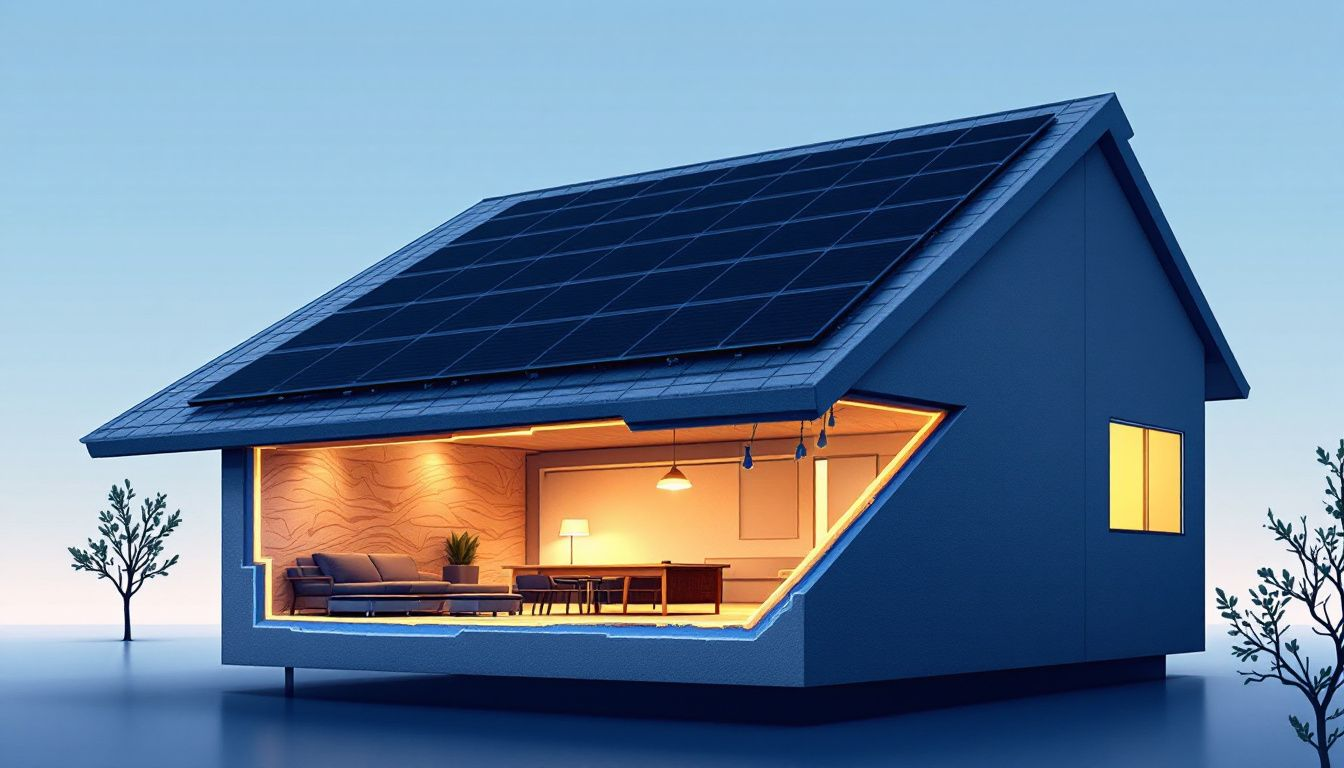
Solar panels can have a significant long-term impact on your roof’s structure. Addressing any necessary roof repairs before installation can mitigate future complications and costs. Long-term exposure to solar panels can actually enhance roof durability by shielding roofing materials from sun exposure.
The choice of roofing material affects solar panel efficiency due to variations in heat retention and reflectivity. If your roof’s surface displays signs of aging, it might be a good idea to replace it. Doing so before installing solar panels will help ensure optimal results.
Let’s delve into specific aspects of how solar panels affect roof structures over time, as improper installation can lead to solar panels voiding roof warranty.
Weight Distribution and Structural Support
Proper weight distribution is vital for maintaining the roof’s structure and integrity. The roof may be to blame for damage not related to solar panels, indicating that weight distribution can impact overall roof integrity. Consulting with a structural engineer can help ensure that your roof can support the additional weight of solar panels without any issues.
Proper weight distribution prevents structural damage, ensuring that solar panels do not compromise roof integrity. By addressing these concerns early, you can prevent potential problems and extend the lifespan of your roof.
Roof Lifespan and Maintenance
Solar panels can provide a protective layer that helps prevent sun damage to roofs, thereby extending their lifespan. Solar panels can extend the lifespan of asphalt shingles by providing UV protection. Solar panels protect asphalt shingles from UV damage, extending their lifespan.
Proper maintenance of a roof is essential to enhance its longevity after solar panel installation. A relatively new or well-maintained roof ensures optimal performance and durability when installing solar panels.
Potential for Damage and How to Prevent It
While the potential for damage exists, proper installation and maintenance can prevent it. No holes are created in the roof if proper sealing is done around penetrations during installation. Professional installation virtually eliminates the risk of permanent problems.
Proper drainage around solar panels is crucial to avoid water pooling and subsequent damage. Regular maintenance and inspections should be conducted to ensure that both the solar system and the roof remain in optimal condition.
Financial Benefits of Solar Panel Installations
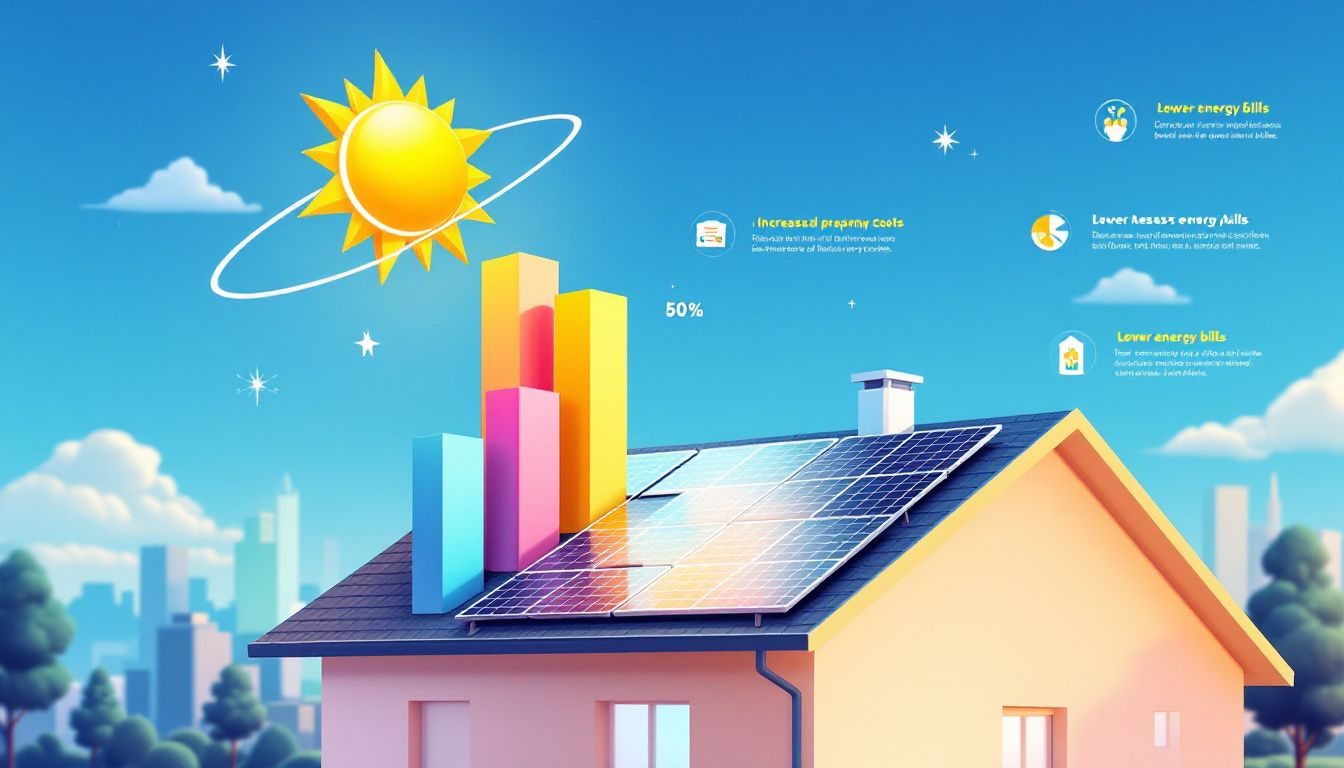
Beyond the structural benefits, solar panels offer substantial financial advantages. Solar panels offer long-term savings, allowing companies to benefit from reduced operating costs and energy efficiency. Installing solar panels can lead to significant reductions in utility expenses, with potential savings exceeding $100 a month.
The financial landscape for solar energy is improving due to government incentives and financing options, making it more affordable. Companies can claim a 30% federal tax credit on solar system purchases made before 2033, enhancing financial return. Let’s explore these financial benefits in detail.
Reduction in Energy Costs
Business owners can see substantial savings on energy costs, often exceeding $100 per month. By generating their own power with solar panels, businesses can lower their reliance on grid electricity, resulting in significant energy cost reductions through solar power.
These savings add up over time, making solar panels a smart financial investment. The positive impact of solar energy on reducing energy costs cannot be overstated, providing businesses with a sustainable energy source that pays off in the long run.
Tax Credits and Incentives
The Federal Solar Tax Credit allows businesses to claim a percentage of the cost of the solar PV system on their federal taxes, providing significant savings. These tax credits and incentives play a crucial role in making commercial solar installations more financially attractive.
Utilizing government incentives enhances the financial return on solar panel investments. This makes the installation of solar panels not only an environmentally friendly choice but also a financially savvy one.
Increased Property Value
Homes equipped with solar panels can command a higher price. They often sell for approximately $15,000 more than comparable properties lacking solar installations. Homes with solar energy systems can see a property value increase of approximately $15,000 compared to similar homes without them. This trend indicates that installing solar panels increases market value, making properties more appealing to buyers.
Solar panels significantly boost the overall value of commercial properties, demonstrating financial viability beyond energy savings.
Ensuring Proper Installation and Maintenance
Proper installation and maintenance maximize the benefits of solar panels. Qualified professionals reduce the likelihood of design and interconnection approval issues. Working with reputable solar companies ensures access to qualified experts for inspection and planning. The safety and quality of solar energy systems are governed by robust regulatory standards and safety certifications.
Proper permitting is required before installing solar panels on a roof. Approval by local building authorities and electric utility is needed for grid-tied solar panels installed in the US. Regular maintenance helps mitigate risks associated with solar panel installations, ensuring that the system operates at peak performance.
Let’s delve into more detailed aspects of ensuring proper installation and maintenance.
Choosing a Reputable Installer
Choosing a reputable solar installer is crucial to minimize potential dangers and ensure the integrity of your roof during installation. Professional installation ensures that the installer has experience and liability coverage, which is essential for avoiding damage.
Homeowners should shop around for installers, consult public reviews, and ask for recommendations to find the best professional. By hiring a professional for installation do solar panels, you can ensure better preparedness and execution of the solar panel installation.
Regular Inspections and Maintenance
Regular inspections are crucial to identify early signs of structural stress caused by solar panels. Regular maintenance is essential for ensuring that solar energy systems operate at peak performance and to address any issues that may arise with the system.
Regular maintenance catches minor repairs early, ensuring the longevity and efficiency of your solar panel system.
Addressing Issues Promptly
Addressing issues with solar panels promptly is crucial to prevent minor problems from escalating into significant repairs. If any solar panels damage occurs, contact your solar installer or a qualified technician immediately to ensure safe operation and prevent further complications.
Ignoring damage can lead to electrical risks or exposure to harmful materials, jeopardizing safety. Following preventive steps protects your solar roof and helps ensure that you do not damage your roof, ensuring both the system and roof remain in optimal condition, preventing damaging your roof.
Summary
In summary, installing solar panels on your commercial property can be a game-changer, providing both environmental and financial benefits. When installed correctly, solar panels offer protection to your roof, enhance its lifespan, and significantly reduce energy costs. It’s crucial to understand how solar panels interact with different roofing materials and the importance of professional installation and regular maintenance to prevent potential damage.
By choosing reputable installers and addressing any issues promptly, you can maximize the longevity and efficiency of your solar panel system. The financial incentives and increased property value further make solar panels a wise investment. Embrace this sustainable energy solution and enjoy the long-term benefits it brings to your property and the environment.
Frequently Asked Questions
Do solar panels damage roofs?
Solar panels don’t damage roofs when installed correctly by professionals. In fact, they can help protect your roof and prolong its lifespan.
Can solar panels cause roof leaks?
Rest assured, properly installed solar panels won’t cause roof leaks. With the right sealants and flashing, any roof penetrations are effectively secured and waterproofed.
How do solar panels affect the value of my property?
Solar panels can boost your property’s value, often adding around $15,000 compared to similar homes without them. So, investing in solar energy not only benefits the environment but also enhances your home’s worth.
What steps are involved in the solar panel installation process?
The solar panel installation process involves evaluating and planning, securely mounting the panels, and sealing everything to prevent leaks. Following these steps ensures a successful and durable setup.
Why is it important to choose a reputable solar installer?
It’s crucial to choose a reputable solar installer to ensure your system is installed correctly, which helps prevent issues like roof damage and leaks. Their experience and liability coverage provide peace of mind and a more efficient installation.

